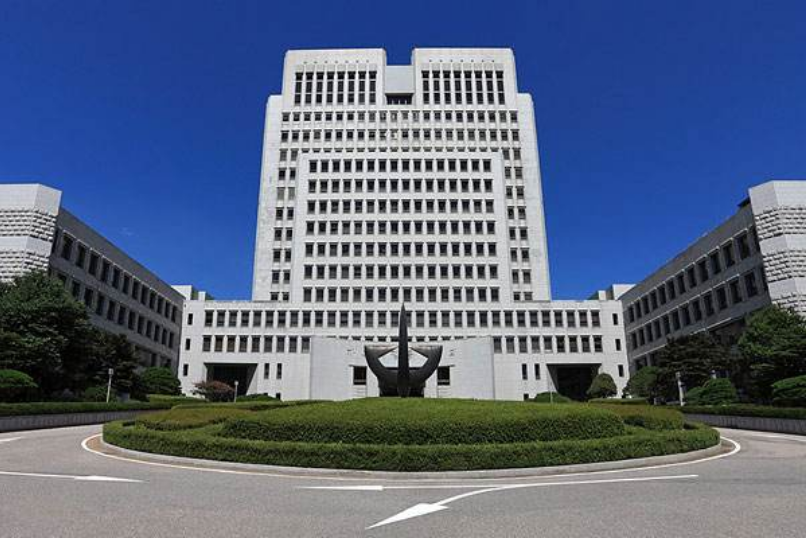|
|
False refugees in South Korea have been banned repeatedly. Who touched the bottom line of the refugee law?Time£º2020-05-13
Supreme Court of Seocho-gu, Seoul, South Korea According to South Korea's "Legal News" reported on November 18, 2019, the Seoul Central District Court issued a judgment on the 17th. The 46-year-old Korean lawyer Jiang Mou issued false refugee application materials and collected money for Chinese residents in South Korea, which violated South Korea. The Entry-Exit Administration Law was sentenced to one year in prison and two years ¡¯probation. According to the prosecution investigation, Jiang accepted the commission of illegal intermediaries from October 2016 to the end of 2017 to issue matters such as false refugee application materials and change of residence status for Chinese citizens who wish to stay in Korea. Jiang ¡¯s usual reason is that ¡°the applicant was persecuted by his government because he believed in a certain religion¡±. So far, 184 Chinese people have filed false refugee applications through Jiang, and Jiang has charged 2 million to 3 million won (1 million won is about 6,000 yuan) for each person. According to the relevant laws of South Korea, once the refugee application is approved, the relevant person can obtain a "humanitarian residence permit visa G-1" to legally reside in South Korea. Even if their refugee status is not recognized in the end, the time can be delayed through administrative reconsideration or prosecution, so that they can stay in Korea for two or three years, and the relevant personnel can continue to make money in Korean labor. Yonhap said that the 184 Chinese citizens actually applied for refugee status through the Korean Ministry of Justice through Jiang Mou in order to work illegally in South Korea. Because these applications were concentrated on specific lawyers, the Korean immigration management department was alerted, and the immigration special investigation team launched an investigation. In the sentencing, the court stated that Jiang took advantage of the loopholes in Korean law for profit, but because Jiang was a first-time offender, he was sentenced to probation for the purpose of making him reflect. South Korean lawyer draws Chinese to be arrested as refugee On July 3, 2018, the Immigration Special Investigation Team of the Seoul Exit and Entry Aliens Department arrested three criminal suspects, including the director of Y Law Office, Jiang Mou, on the suspicion of violating the ¡°Entry and Exit Administration Law¡±. Since April 2016, Jiang and others have taught foreigners to apply for refugees with false facts and applied for refugee visas. In addition, 184 illegal intermediaries who recruited 184 Chinese ¡°refugees¡± on the online platform for Jiang ¡¯s law firm were also criminally detained by the investigation team. According to the investigation agency, after Jiang set up an office of a law firm near Seoul's entry and exit, illegal intermediaries brought foreigners who wanted to run refugees and taught them to write false facts in their applications, which produced a large number of "false" refugee". They asked the coming Chinese to write false facts such as "persecuted by the Chinese government" and exchanged their residence status in exchange for discrediting China's image. It is understood that Jiang and others collected an agency fee of 5 million won from the applicant, of which 2 million won was used in legal procedures, and the remaining cost was divided between illegal intermediaries in the name of the introduction fee. Generally, foreigners applying for refugees will get a temporary visa (G-1) for about eight months during the refugee qualification review. If they fail to pass the refugee review, Jiang and others continue to delay by applying for objections and administrative litigation. Duration of stay in South Korea. 800 Almighty God cult personnel seeking asylum in South Korea were dismissed "Korea Times" reported on November 14, 2018 that "hundreds of Chinese people who applied for religious asylum on Jeju Island were rejected," said Kang, the head of the refugee application evaluation work of the "Almighty God" member of the South Korean Jeju Island Immigration Office. Young-woo told reporters that since 2014, about 200 ¡°Almighty God¡± personnel have gone to the island through the Jeju Island visa exemption policy and applied for refugee asylum. There are currently about 800 ¡°Almighty God¡± personnel who have submitted applications. But no one's application was approved. "We strictly evaluate their refugee applications under the Korean Refugee Act," Kang Young-woo said. "However, most" Almighty God "refugee applicants did not provide a detailed and credible explanation of how they were received in China Persecuted. They just claimed to worry that they might be persecuted if they stayed there. " The essence of "Refugee Visa" The so-called "refugee visa" is a temporary visa (G-1) obtained during the refugee qualification review after applying to the Korean government for refugees. This type of visa is not a visa granted only to refugees, but a temporary residence status granted to foreigners during the review period. Holding a G-1 visa does not allow you to work legally. You still have to choose to "run black" if you want to stay in South Korea after the refugee qualification review. However, because the nature of applying for refugees is the same as that of the country of betrayal (which is the same as the South Korean government falsely claiming to be persecuted by the motherland), when applying for such visas is found to lie, it will not only damage the image of the motherland but also be deported. |

















